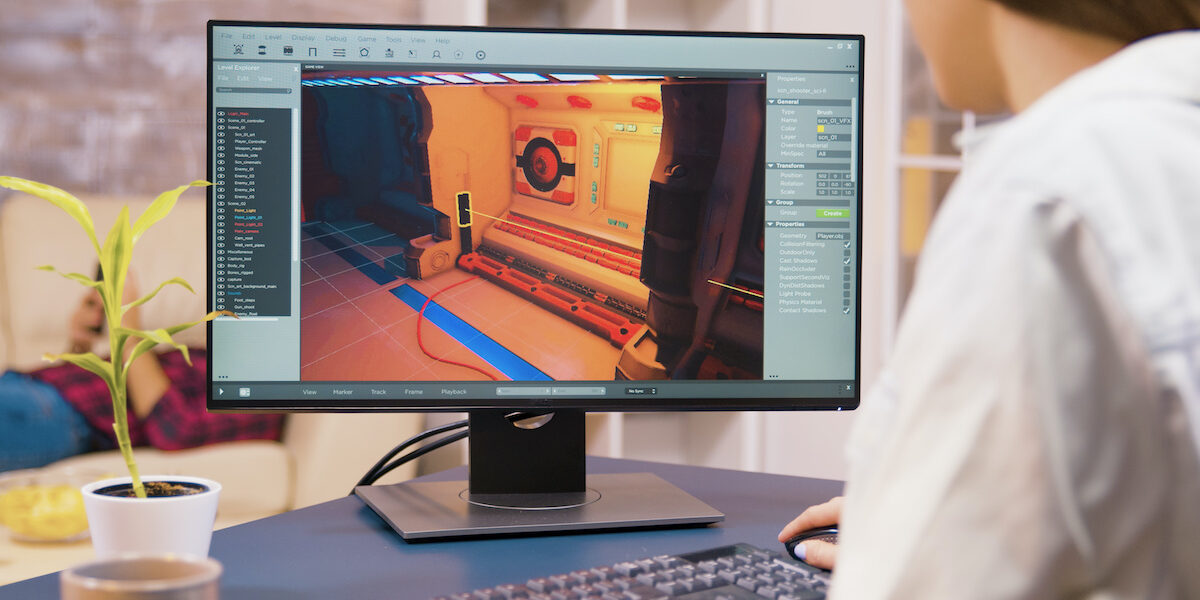Game design is a multidisciplinary field that blends creativity, technical expertise, and a deep understanding of player psychology.
Game designers are the architects behind captivating and immersive gaming experiences. To embark on a successful journey as a game designer, one must possess a diverse set of skills. In this article, we will explore the essential skills required to become a game designer and explore how they contribute to the creation of exceptional games.
- Creativity and Imagination: At the heart of game design lies creativity and imagination. Game designers must possess the ability to conceive innovative ideas and envision compelling gameplay concepts. They need to think outside the box, creating unique worlds, characters, and mechanics that engage players on an emotional and intellectual level. A vivid imagination helps game designers conceptualise captivating narratives and design visually appealing game environments.
- Storytelling and Narrative Design: Game designers often craft intricate narratives that unfold within their games. Developing strong storytelling skills allows designers to create immersive and memorable experiences for players. Understanding narrative structures, character development, and world-building techniques enables game designers to craft compelling storylines that resonate with the players and keep them engaged throughout the game.
- Game Mechanics and Systems Design: Game mechanics are the rules, interactions, and systems that govern gameplay. Game designers must have a deep understanding of game mechanics and their impact on player engagement. They need to design gameplay that is intuitive, balanced, and offers meaningful choices. Mastery of systems design allows game designers to create complex and interwoven gameplay systems that provide depth and challenge to players.
- Technical Proficiency: While game designers may not need to be expert programmers, a solid foundation in technical skills is advantageous. Understanding game engines, scripting languages, and basic programming concepts helps designers effectively communicate their vision to the development team. Technical proficiency also enables designers to prototype and iterate on their ideas, ensuring that their designs are feasible and achievable within the technical constraints of game development.
- User Experience (UX) Design: A seamless and enjoyable user experience is crucial for the success of a game. Game designers need to focus on user-centric design principles, ensuring that players can navigate the game interface effortlessly and intuitively. Knowledge of UX design principles, usability testing, and player feedback analysis empowers game designers to create games that are accessible, immersive, and rewarding for players.
- Collaboration and Communication: Game design is rarely a solitary pursuit. Effective collaboration and communication skills are essential for game designers to work effectively within interdisciplinary teams. Game designers must be able to articulate their ideas clearly, listen to feedback, and collaborate with artists, programmers, and other team members to bring their vision to life. Strong interpersonal skills facilitate a harmonious working environment, where everyone’s contributions are valued and aligned towards a common goal.
- Adaptability and Problem-Solving: The game design process is iterative and dynamic, often requiring designers to adapt to changing requirements and solve complex problems. Game designers must embrace a problem-solving mindset, identifying and addressing design challenges creatively. They need to iterate on their designs based on playtest feedback and make informed decisions to improve the gameplay experience. Adaptability allows game designers to navigate the ever-evolving landscape of game development and stay ahead of emerging trends.
Becoming a successful game designer requires a combination of creativity, technical proficiency, storytelling prowess, collaboration skills, and adaptability. The skills mentioned above provide a strong foundation for aspiring game designers to create engaging and immersive gaming experiences. By continuously honing these skills and staying abreast of industry trends, aspiring game designers can unlock the path to success and contribute to the ever-evolving world of game design.
Keyline is the only college in Durban, South Africa to offer short courses in Game Design. Game Design is also offered as part of our Digital Communication Design course which is a 1-year full-time program.



























